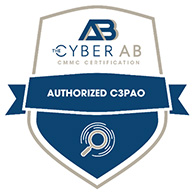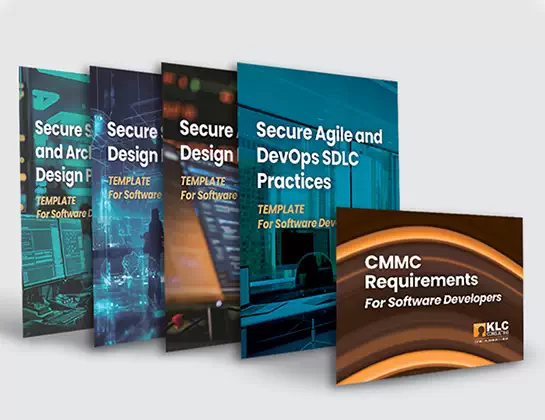L2 Assessments for Defense Software Environments

Now that the CMMC Program Rule (32 CFR Part 170) is effective, it is urgent for DIB companies to attain Level 2 Certification. It’s not a best practice, rather it’s a mandatory requirement to win and retain critical DoD contracts involving Controlled Unclassified Information (CUI). As seasoned experts in both software development and CMMC assessments, KLC Consulting is uniquely equipped to assess your in-scope software environment, including Secure Software Development Lifecycle (SSDLC), DevSecOps practices, and software support infrastructure.

Challenges for Software Companies
- Complex CUI Scoping: Identifying and securing CUI across vast codebases, documents, and distributed development teams.
- SSDLC Integration: CMMC practices must be deeply embedded throughout the software development lifecycle.
- Hybrid Environments: Navigating compliance in complex IT infrastructures, including on-premises systems, cloud environments (like Azure GCC High), and custom APIs.
- Supply Chain Vulnerabilities: Managing CMMC compliance for third-party tools, libraries, and subcontractor contributions.
- Competitive Edge: CMMC certification is rapidly becoming a key market differentiator.
These complexities highlight the need for a C3PAO with deep software development expertise. Read our case study on how an OSC re-secured a critical DoD contract re-compete.
CMMC Level 2 Certification Assessment Process
As an authorized C3PAO, KLC Consulting evaluates the compliance of your CUI environment, tailoring our methodology to your unique scale and complexity. Our Official Assessment Includes:
- Cross-Functional Engagement: Work with all relevant teams, such as IT, security, manufacturing, and software development.
- Comprehensive Scope Verification: Verify your CUI boundary, data flows, and inclusion of all related systems, users, and third-party vendors.
- SSDLC Evaluation: Review how CUI is handled within your development lifecycle, codebases, and continuous integration/delivery pipelines.
- Hybrid Environment Expertise: Evaluate compliance across on-premises systems and specialized cloud environments like Azure GCC High.

Unsure About Your CMMC Readiness?
Many defense software companies grapple with CMMC Level 2 readiness. To alleviate this, KLC Consulting offers a Mock “Readiness” Assessment. This simulated evaluation mirrors the official CMMC assessment process, providing a realistic “practice run” to identify deficiencies and outline a clear remediation roadmap, so you undertake your formal assessment with confidence.
Your Best C3PAO for Software CMMC Assessments
When it comes to assessing software development companies for CMMC Level 2, specialized expertise is non-negotiable. At KLC Consulting, we don’t merely evaluate; we possess a profound understanding of your operational environment and its unique complexities.
Our CMMC Certified Assessors (CCAs) bring deep, practical experience in:
- Secure Software Development Lifecycle (SSDLC): We know precisely how CUI flows through your code, version control, build pipelines, and production environments.
- DevSecOps Practices: Our team is adept at evaluating integrated security within agile development and operations.
- Complex IT & Cloud Infrastructures: We confidently navigate hybrid environments, including Azure GCC High, ensuring all aspects of your system are compliant.
Unlike many C3PAOs, our knowledge base far exceeds foundational requirements, ensuring a precise and relevant assessment for even the most advanced operational contexts.
The KLC Consulting Approach
We understand the apprehension that comes with high-stakes assessments. At KLC Consulting, you won’t find invasive “gotcha” auditors. Our philosophy is to be the objective C3PAO that validates your demonstrated security practices with a warm, interactive style. We’re here to ensure an assessment delivered with a clear understanding and the human touch, without digging deeper in search of flaws.

Accelerate Assessment Prep with Software Dev Guide & Templates
Stop navigating complex CMMC requirements alone. To help you streamline preparation and strengthen your posture before the audit, we’ve compiled free essential templates for secure software design, agile/DevOps SDLC integration, secure API practices, and a clear breakdown of CMMC requirements specifically for developers.





